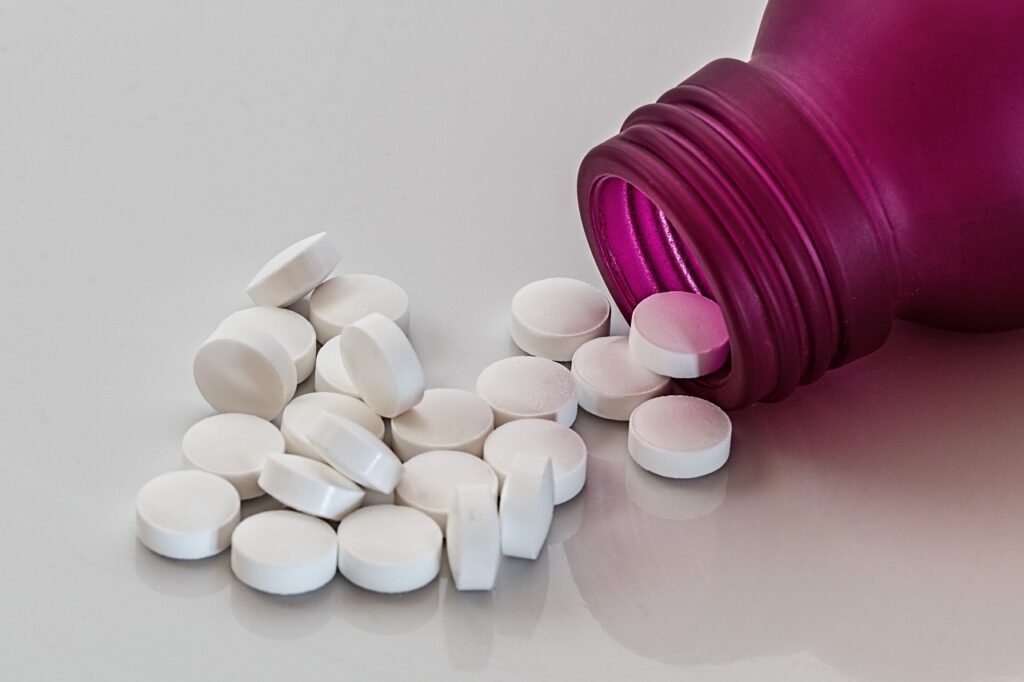20+ Years Experience
Specialist Inpatient Rehabilitiation

Sex addiction, a widely debated topic, has become more prevalent in today’s society, yet it remains misunderstood.
As it continues to negatively impact countless lives, understanding and treating sex addiction is crucial for those seeking sex addiction help.
But what exactly is sex addiction, and how can one overcome it?
This comprehensive guide will delve into the complexities of sexual addiction, its causes, coping strategies, and treatment options available for sex addiction treatment.
Sex addiction is often characterised by compulsive sexual thoughts and behaviours that can have detrimental effects on one’s personal life, personal relationships, and finances.
While experts remain divided on whether sexual addiction is a real addiction, it does bear similarities to other addictive disorders, such as substance abuse.
Sex addicts, sometimes referred to as sex addict individuals, often struggle with compulsive sexual behaviour and face negative impacts in their lives due to their addictive sexual behaviours, which can manifest in a multitude of ways.
Acknowledging the problem and its potential consequences is the first step towards overcoming sexual addiction.
Treatment options include inpatient and outpatient programs, therapy techniques, and medication management to address addictive sexual activities.
Sexual addiction can come in many forms, including:
Compulsive sexual behaviour disorder (CSBD) is an impulse control disorder that has been acknowledged by the World Health Organisation since 2018.
This disorder is characterised by an inability to control one’s sexual activities, leading to negative consequences in various aspects of life.
While compulsions involve an unquenchable impulse to take action, addiction requires action to alleviate distress or experience gratification.
Both compulsions and addictions can lead to negative consequences in an individual’s life.
In order to receive a diagnosis of CSBD, certain clinical criteria must be met.
As the understanding of CSBD continues to evolve, it is essential for those struggling with sexual addiction to recognise it as a complex mental health condition that requires comprehensive treatment and support.
Sex addiction shares many similarities with drug and alcohol abuse, such as the reward experienced by the addict followed by remorse and guilt.
Research indicates that sexual addiction develops in a similar fashion to alcohol and drug addiction.
During sexual activity, our bodies release a combination of potent neurochemicals that can produce a pleasurable ‘high’ that has the potential to become addictive.
As with substance abuse, over time the body will become tolerant to these ‘highs,’ and the amount required to experience the same sensation increases.
Sexual addiction elicits our brain’s reward system in a comparable fashion to other addictions such as addiction to alcohol or drugs.
This trigger mechanism highlights the complexity of sex addiction and the need for a multifaceted approach to treatment and recovery.
Recognising the signs of sex addiction is crucial for seeking help and embarking on the road to recovery.
These signs include emotional consequences, such as anxiety, stress, and guilt, and physical and social risks, such as sexually transmitted infections, broken interpersonal relationships, and isolation.
Acknowledging the presence of these signs in one’s life is the first step towards understanding the severity of sexual addiction and the need for comprehensive treatment.
The emotional repercussions of sexual addiction can be overwhelming.
Individuals with hypersexuality or sexual addiction often experience negative emotions and feelings of:
These emotions can lead to relationship difficulties due to the clandestine nature and lack of integrity associated with the addiction.
Additionally, sexual addiction may lead to feelings of isolation as a result of the secrecy and dishonesty associated with the addiction, as well as the lack of meaningful relationships.
Sexual addiction may also result in a decline of interest in alternate pursuits due to the concentration on the addiction and the absence of vigour and enthusiasm to participate in other activities.
Recognising these emotional consequences is crucial to addressing the underlying issues and seeking appropriate treatment.
Sex addiction may pose several physical risks, including:
These risks serve as a reminder of the importance of addressing sexual addiction and seeking professional help.
The social repercussions of sexual addiction may include a heightened risk of physical harm by others, the potential for unwanted pregnancy, and the possibility of HIV/AIDS.
Having multiple partners will also increase the risk of other STIs and could cause problems with personal relationships.
As the addiction progresses, relationships with partners, family, friends, and coworkers may suffer, leading to further emotional distress and isolation.
Acknowledging these physical and social risks is essential for understanding the severity of sex addiction and the need for intervention.
The precise causes of sex addiction remain unclear.
However, experts suggest that it may be attributable to a combination of genetic predisposition, childhood trauma and abuse, brain chemistry, chemical imbalance and hormones.
Understanding these contributing factors can provide valuable insight into the complex nature of sexual addiction and inform more effective treatment approaches.
Genetics may play a role in sex addiction. Certain studies have suggested that specific genes may be associated with an individual’s vulnerability to developing addictive behaviours, including sex addiction.
Genetic traits may play a role in determining one’s vulnerability to sex and love addiction.
Although the specific genes and mechanisms involved are still undergoing research, understanding the potential genetic factors can help inform more targeted treatment approaches and support for those struggling with sexual addiction.
A high percentage of sex addicts have experienced childhood trauma or abuse.
Childhood trauma or abuse can encompass:
These difficult experiences can result in sentiments of shame, guilt, and low self-esteem, which may be contributing factors to the emergence of sexual addiction.
It is advised to seek professional assistance from a therapist or counsellor to effectively address childhood trauma or abuse.
By addressing these underlying issues, individuals can begin to heal and develop healthier coping mechanisms to manage their sex addiction in minor or extreme cases.
Brain chemistry and hormones also play a significant role in sex addiction. It has been observed that dopamine and endorphins are the neurotransmitters associated with sex addiction.
Dopamine is released during sexual activity and is known to induce a pleasurable sensation, potentially leading to addiction and preoccupation with sexual behaviour.
Moreover, people with an addiction to love and/or sex may have higher levels of these chemicals than others.
Research suggests that elevated levels of androgens may be associated with sex addiction, as they have been found to be linked to heightened libido and sexual arousal.
Understanding the role of brain chemistry and hormones in sex addiction can help inform more effective treatment strategies, providing a comprehensive approach to addressing the complex nature of this disorder.
Seeking help for sex addiction involves finding a rehab centre and building a support network, including healthcare professionals, counsellors, and peers.
By taking the first step in seeking help, individuals can begin to regain control of their lives and work towards a healthier future, free from the constraints of sex addiction.
Rehab centres provide a safe and supportive environment for individuals to work through their addiction and learn.
When selecting a sex addiction rehab centre, there are several essential elements to consider.
Finding the right rehab centre for sex addiction treatment is crucial for your recovery journey.
Inpatient treatment and outpatient programs are available, depending on the individual’s needs and circumstances.
Both types of programs offer different advantages, so it’s essential to choose the one that best suits your situation and recovery goals.
Building a support network is crucial for recovery from sex addiction. Some options for support networks include:
These networks provide a safe space for individuals to share their experiences, learn from others, and receive the encouragement and understanding they need throughout their recovery journey.
Participating in group therapy and support groups, such as Sex Addicts Anonymous (SAA) and Alcoholics Anonymous, can be highly beneficial in managing sex addiction.
Group therapy offers a secure and supportive atmosphere to discuss issues and obtain guidance and advice from others who have experienced similar struggles.
By engaging in these support networks, individuals can remain accountable and motivated in their recovery journey, ultimately leading to a healthier, happier daily life.
Treatments for sex addiction include inpatient treatment and outpatient programs, various therapy techniques, and medication management.
Each of these options can be tailored to the individual’s needs and circumstances, providing a comprehensive approach to addressing the complex nature of sex addiction.
Inpatient programs provide a safe and secure environment for individuals to focus on their recovery. These programs are available on these programs.
Inpatient programs provide a comprehensive recovery atmosphere, whereas outpatient programs enable patients to maintain their regular routine but may expose them to stimuli.
Inpatient treatment programs offer a more intensive treatment programme, while outpatient programs offer more flexibility.
Both types of programs have their advantages and disadvantages, so it is essential to choose the one that best suits your needs and recovery goals.
Inpatient rehabilitation typically offers a broader selection of therapies and, given the 24/7 nature of the program, can provide a more comprehensive treatment plan.
Outpatient programs, on the other hand, allow individuals to continue their daily routine while receiving treatment, providing a more flexible approach to recovery.
Ultimately, the choice between inpatient and outpatient programs will depend on the individual’s needs, circumstances, and commitment to their recovery journey.
Various therapy techniques are employed to address sex addiction, including:
Each of these techniques addresses different aspects of sex addiction and can be tailored to the individual’s needs and circumstances.
CBT, for example, focuses on addressing further issues by changing the way one thinks and behaves in response to thoughts.
Other therapy techniques, such as psychodynamic therapy, focus on understanding unconscious motivations and conflicts that are causing distress.
By utilising a combination of these therapy techniques, individuals can develop a comprehensive and personalised treatment plan to treat sex addiction, addressing the root causes and promoting long-term recovery.
Medication management may involve the off-label use of antidepressants or other medications to help manage symptoms of sex addiction.
Selective serotonin reuptake inhibitors (SSRIs) are a potential option for some individuals.
Additionally, medications such as naltrexone have been found to suppress abnormal sexual activity due to their impact on dopamine.
It is essential to consult a healthcare professional for a personalised treatment plan to ensure that the medications prescribed are suitable for the individual and that any potential side effects are closely monitored and managed.
By combining medication management with therapy and support, individuals can develop a comprehensive treatment plan that addresses the complex nature of sex addiction and promotes long-term recovery.
Coping strategies and preventing relapse in sex addiction recovery involves identifying triggers, developing healthy coping mechanisms, and maintaining a strong support network.
By implementing these strategies, individuals can effectively manage stress and emotions, reducing the risk of relapse and promoting long-term recovery.
Identifying triggers for sex addiction is essential for developing strategies to avoid or manage them effectively. Common triggers include:
Triggers can be both positive and negative experiences, such as feeling desired or attractive, or feeling lonely or rejected.
By recognising and understanding one’s triggers, individuals can develop strategies to circumvent or manage them in a healthy manner.
This may involve seeking professional help, engaging in self-care activities, or utilising support networks to manage stress and emotions effectively.
Developing healthy coping mechanisms is crucial in managing sex addiction.
Self-help activities, such as mindfulness, exercise, and hobbies, can assist individuals in managing stress and emotions without resorting to compulsive sexual behaviours.
Additionally, maintaining a strong support network can provide encouragement, understanding, and accountability throughout the recovery process.
By implementing these healthy coping mechanisms, individuals can regain control of their lives and work towards a future free from the constraints of sex addiction.
Through ongoing support and assistance from a healthcare professional, individuals can maintain their recovery and have a healthy sex life.
Sex addiction is a complex and often misunderstood issue that can have far-reaching consequences on both the individual and their loved ones.
By understanding the nature of sex addiction, its causes, and available treatment options, individuals can take steps towards recovery and regain control of their lives. With the right support, resources, and determination, overcoming sex addiction is possible.
In conclusion, the journey to recovery from sex addiction may be challenging, but it is attainable.
By seeking professional help, building a strong support network, and developing healthy coping mechanisms, individuals can overcome the constraints of sex addiction and lead a healthier, happier life.
To stop your sex addiction, the best thing to do is seek professional help.
Seeking professional help from a therapist with expertise in sexual addiction enforces a more successful recovery.
Support from peers, making changes to triggers that tempt you, managing other mental health conditions, and channelling energy to healthier activities are all important aspects of preventing and overcoming sex addiction.
Addiction to sex could be linked to underlying psychological issues such as depression, anxiety and other mental health conditions.
With a 40% correlation between sex addiction and psychiatric conditions, seeking professional help is essential for understanding and treating this condition.
Sex addiction is increasingly being recognised as a mental health problem by organisations such as the World Health Organisation.
Research suggests that it can develop like a chemical addiction.
A person with sex addiction may have a compulsive need to be sexually stimulated.
Sex addiction and Compulsive Sexual Behavior Disorder (CSBD) are two distinct conditions, as sex addiction is characterised by obsessive sexual thoughts and sexual activities, whereas CSBD is an impulse control disorder.
Both can lead to negative consequences in an individual’s life.
Sex addiction develops when the brain’s reward system is activated during sexual activity.
This releases pleasurable neurochemicals that can become addictive over time.
These neurochemicals can become addictive, leading to compulsive sexual behaviour and an inability to control one’s sexual urges.
This can lead to serious consequences, such as relationship problems, financial difficulties, and even legal issues.
There are a range of other services that we can provide. Have a look at the list below for more information:




















We Aim To Reply To All Enquiries With-in 24-Hours